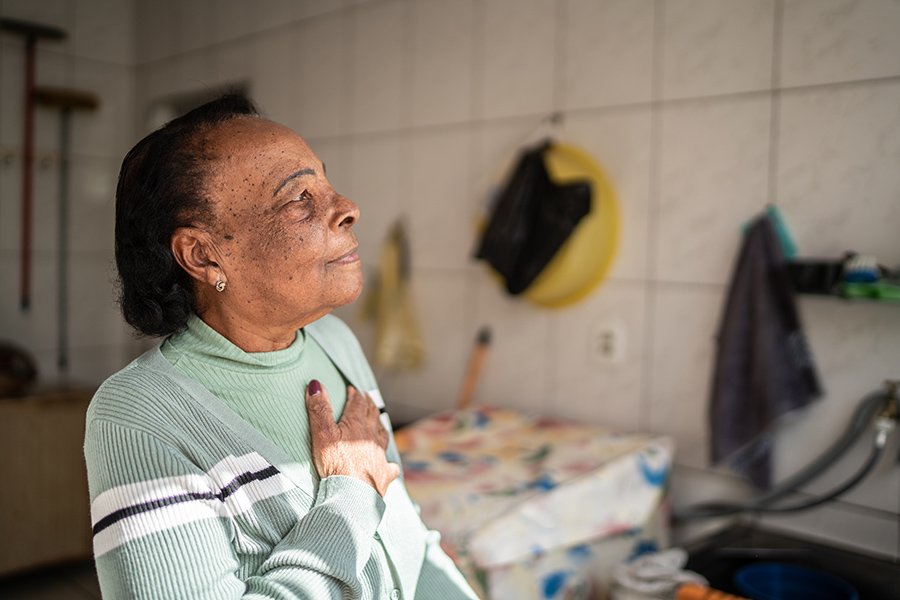Do you or your loved one need home healthcare, or just home care?
What is Home Healthcare?
Approximately 15 million individuals in the U.S. require some form of home healthcare, and more than 35,000 home health providers exist in the industry today. Per medicaid.gov, home health care is usually less expensive, more convenient, and just as effective as care you receive in a hospital or skilled nursing facility.
Home health professionals provide a wide variety of services in the comfort of home, including:
- Rehabilitation therapy, such as physical therapy, occupational therapy and speech therapy.
- Wound care (for pressure sores, surgical wounds, etc.)
- Diagnosis management, such as diabetes care.
- Catheterization or ostomy care.
- Medication administration, management and monitoring, including: intravenous therapy, pain control, and medication evaluation.
- Patient and caregiver education, including: case management, counseling, and locating or coordinating community services.
Is Home Healthcare the Same as Hospice or Palliative Care?
Similar to home healthcare, hospice and palliative care are prescribed by a doctor, provided by healthcare professionals, and covered by insurance based on eligibility. However, hospice and palliative care have different care goals. Home healthcare is curative care: its goal is recovery, or at least progress towards improved functionality and independence. Hospice and palliative care are comfort care: their goal is to manage symptoms and pain in a way that improves quality of life.
Hospice care focuses on the period closest to death, offering comfort care for patients with a prognosis of six months or less, as determined by their physician. This time frame may be extended multiple times if their physician certifies. Hospice care is usually considered when a cure is no longer possible, or the burdens of treatment outweigh the benefits. It may include pain and symptom management, medications and medical supplies, speech and physical therapy (when needed), emotional support, and grief support.
Palliative care, on the other hand, is a resource for anyone living with serious illness. Palliative care focuses on easing pain and discomfort, reducing stress, and maximizing quality of life. You can receive palliative care while also receiving curative and therapeutic care for an illness, such as chemotherapy, dialysis, or surgery. Some benefits of palliative care include pain and symptom management, assistance developing your plan of care, care coordination, help with insurance forms and advance directives, and spiritual care.
What is Home Care?
Home care refers to services and supports that can be performed by those who are not licensed medical professionals. These types of services range from cooking, grocery shopping, and housekeeping to transportation to/from doctors appointments, medication reminders, and help with activities of daily living (bathing, eating, dressing etc.). While these needs are often initially met by family members, the range of needs can exceed the support loved ones are able to easily or effectively provide. Home care services can be provided by non-medical staff, such as home care aides or personal care assistants.
Home care is an appropriate option to consider when an individual prefers to stay at home but needs ongoing support in multiple areas that allow the individual to live well independently. Home care is typically paid directly by the individual or their long-term care insurance. Medicaid may also cover home care if the individual is eligible.
Home care providers can be hired privately or through a home care agency. Home care aides and personal care assistants can free up time for overwhelmed family caregivers and provide customized support for those who need:
- Companionship.
- Help with cooking, cleaning, and other household duties.
- Transportation to and from activities and appointments.
- Help with personal care tasks, including activities of daily living (ADLs).
Home care services are beneficial supports for seniors who want to age in place, for example.
What Services are Provided in Home Care vs. Home Healthcare?
Here are the types of services you might expect from either home care or home healthcare:
| Service | Home Care | Home Healthcare |
| Activities of daily living, or ADLs (grooming, dressing, bathing, getting into/out of a bed or chair,walking, using the toilet, eating, etc.) |
✓ | ✓ |
| Health monitoring | ✓ | |
| Injections and IV therapies | ✓ | |
| Medication Administration | ✓ | |
| Medical tests | ✓ | |
| Pain management | ✓ | |
| Rehabilitative therapy: Speech, Occupational & Physical | ✓ | |
| Skilled nursing | ✓ | |
| Wound Care | ✓ | |
| Light housekeeping & laundry | ✓ | |
| Grocery shopping & Errands | ✓ | |
| Medication reminders | ✓ | |
| Planning & Meal Preparation | ✓ | |
| Socialization | ✓ | |
| Transportation | ✓ |
How to Find Home Healthcare Services Covered by Medicaid or Medicare
To find home healthcare services covered by Medicaid or Medicare, and to compare them based on the quality of services they provide, visit the Centers for Medicare and Medicaid Services’ (CMS) Home Health Compare page: www.medicare.gov/care-compare. Here you can also compare doctors and clinicians, hospitals, hursing homes, hopsice care, inpatient rehabilitation facilities, long-term care hospitals, dialysis facilities and medical equipment and suppliers.
For a list of all home healthcare agencies that have been registered with Medicare, visit: data.cms.gov/provider-data/dataset/6jpm-sxkc
For information on home infusion therapy services, visit: www.cms.gov/medicare/payment/fee-for-service-providers/home-infusion-therapy
If you are a home healthcare provider, you can find information from CMS geared towards providers here: www.cms.gov/medicare/enrollment-renewal/providers-suppliers/home-health-agency-center.
Sources include:






















